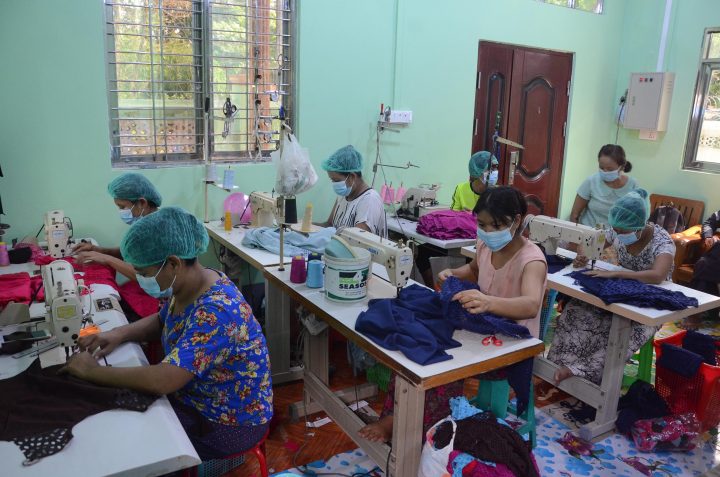Imports of raw materials by CMP businesses have been valued at US$1.99 billion in the past eleven months beginning in October in the 2019-2020 financial year, which plunged from $2.148 billion registered in the corresponding period of last fiscal, according to the Ministry of Commerce.
Myanmar’s manufacturing sector is concentrated mainly in garment and textiles produced on the Cutting, Making, and Packing basis, and it contributes to the country’s GDP to a certain extent.
At present, some CMP garment factories have shut down on the reason for the lack of raw materials due to the COVID-19 negative impacts, leaving thousands of workers unemployed.
Covid-19 badly battered the labour-intensive enterprises, said an official of the Directorate of Investment and Company Administration.
To deal with the shortage of raw materials for the CMP garment factories in Myanmar, the Ministry of Commerce, the Myanmar Garment Manufacturers Association and the Chinese Embassy in Myanmar, the China Enterprise Chamber of Commerce in Myanmar (CECCM) have jointly imported raw materials through border trade channels and airlines.
However, import values of raw materials by CMP businesses as of 28 August in the current FY dropped by $152 million compared with a year-ago period.
The CMP garment sector in Myanmar has been hit hard by the coronavirus impacts amid the global demand slump, said an official of Myanmar Garment Manufacturers Association.
Supply chain disruptions and cancelling customer orders following the coronavirus outbreak hurt the global textile industry. Similarly, the CMP garment sector which contributes to 30 per cent of Myanmar’s export sector is bracing for downward trend because of the cancellation of the order from the European countries and suspension of the trade by western countries amid the pandemic. Exports of garments manufactured under the cut-make-pack (CMP) system were valued about US$4 billion around the past eleven months in the current financial year 2019-2020, said an official of the Ministry of Commerce.
Since an outbreak like Covid-19 might happen in the future, it is necessary to prepare for a sufficient supply of raw materials. The public and private sectors will cooperate in setting up the supply chain on our own sources, including weaving, knitting, dyeing, and sewing factories. Japan is the largest market for Myanmar apparel, followed by the European Union. The MGMA has more than 500 members, and garment factories in Myanmar, employing more than 500,000 workers. Investors prefer to invest in countries with inexpensive labour, such as Myanmar.— Ko Htet
(Translated by Ei Myat Mon)



